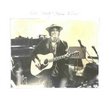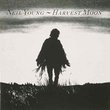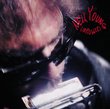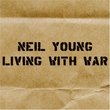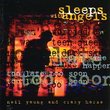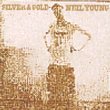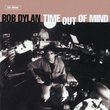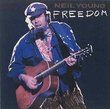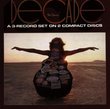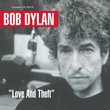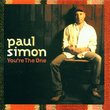| All Artists: Neil Young Title: Prairie Wind Members Wishing: 0 Total Copies: 0 Label: Reprise Records Original Release Date: 1/1/2005 Re-Release Date: 9/27/2005 Genres: Folk, Pop, Rock, Classic Rock, Metal Styles: Singer-Songwriters, Soft Rock, Folk Rock, Singer-Songwriters, Country Rock, Album-Oriented Rock (AOR) Number of Discs: 1 SwapaCD Credits: 1 UPC: 093624959328 |
Search - Neil Young :: Prairie Wind
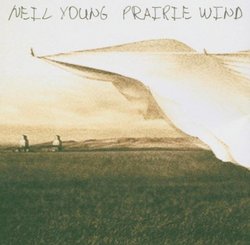 | Neil Young Prairie Wind Genres: Folk, Pop, Rock, Classic Rock, Metal
|
Larger Image |
CD DetailsSimilar CDs
Similarly Requested CDs
|
CD ReviewsOverrated but Decent Bill R. Moore | New York, USA | 03/23/2010 (3 out of 5 stars) "2005's Prairie Wind was widely praised by critics and received two Grammy nominations but immediately struck me and some other hard-cores as minor and overrated. Critics were undoubtedly glad that Young dropped the experimentation of his prior few albums for an ostensible return to his strengths but clearly let enthusiasm run wild. Prairie was touted as a country rock entry like Harvest and Harvest Moon but has little in common with them; its closest antecedent is the somewhat similar Comes a Time, but it is essentially unique. This is good in that it is in Young's lower midrange; he released many better albums before it and has since released more. Those not usually keen on him or who like only his more commercial side may find it worthwhile, but otherwise only hard-cores should bother.
It does resemble the Harvests in being acoustic; only "No Wonder" has electric guitar. However, it is only marginally country; the steel guitar that dominated them has a small role, and there is no banjo or other country trappings. Most songs have simple acoustic riffs, and there are quite a few keyboards plus a few horns. "No Wonder" aside, the songs have a very mellow, laid-back feel that is very calming. This is definitely easy listening and very far from Crazy Horse; it could even be pleasant background music. The real twist is newly prominent backing vocals, primarily by Young's wife Pegi. Young himself also tries out new vocal stylings, notably an increased falsetto. The real problem is that Prairie takes the simplicity motif too far. It is refreshing and charming at first but soon grows thin; the songs simply lack substance, and a few are downright trite. There is a distinct lack of the solos that are always highlights of Young's music, and the simple melodies are not enough to carry the songs. Many long-time Young musicians - Ben Keith, Spooner Oldham, etc. - are here and play as well as ever, but he gives them very little. The vocals are also a downside. Young's signature emotion is here in full force, but his new falsetto is so bad as to be near-embarrassing; I say this as a major fan who has followed Young for years and owns many, many releases. He presumably uses it to achieve greater intimacy, but all it really does is annoy; he has thankfully not returned to it, perhaps belatedly realizing the error. His vocals are thankfully very strong otherwise; he has lost very little of his voice, especially compared to other singers his age, and his phrasing is as good as ever. This is reassuring but makes the falsetto all the more regrettable. Even worse are the backing vocals; a major part of nearly every song, they are extremely distracting and a major detraction. Young is known for having excellent backing vocals, but these are unprecedentedly bad; they clash greatly with his voice and are terrible in themselves. Pegi is unfortunately the main problem. Anyone who knows anything about Young knows how great their relationship is, and she is admirable in many ways besides being a frequent muse, but she simply cannot sing. He is apparently unable to see this, having used her prominently ever since - a truly disturbing development of which this is the first major instance. Most of the other singers are not much better. Another major problem is the words. Young is one of the all-time great lyricists, but one would not know it from this; these are not only among his worst lyrics but would not be good for anyone. They are cliché-ridden, sentimental in the worst way, and simply trite; many seem like rough drafts. It is as if Young did not try to write good lyrics or dashed them off with little thought; he often does not even bother to rhyme. Worse yet, many songs are very repetitive, making already weak lyrics seem even worse. This is all the more sad in that the subject matter is greatly interesting. Young was diagnosed with a life-threatening aneurysm shortly before writing the songs, lost his father, and had his youngest daughter leave for college. All this turns up in the songs, which deal with both childhood and mortality and are laced with autobiographical references. Young is one of the most intensely personal of artists, and such material would presumably make a good album, but this simply fails to hold up. He may have been too close to the events to write of them meaningfully or judge the material objectively. No one can begrudge him turning anguish into art - he has practically made a career of it after all -, but it would have been better not to release work of such middling quality. There are two major exceptions ("No Wonder" and "When God Made Me"), excellent songs with every mark of a Young classic. The former is the only uptempo cut, mixing electric power chords with energetic acoustic strumming. It also has some of Young's most interesting lyrics; written in his signature stream-of-consciousness style, it encompasses everything from his childhood to a 9/11 telethon to hunting ethics. At once personal, political, and surreal, it is a song only Young could write and all the better for it, though backing vocals undercut even it. On that note, "When" has Prairie's only effective backing vocals courtesy of the legendary Fisk University Jubilee Choir. A gospel song with a Young twist, it has beautiful piano, thought-provoking words that only he could pen, and a truly heartfelt vocal. Diehards will want the album just for these cuts, and everyone else should at least download them. "This Old Guitar" is the next best - a slight but enjoyable song with characteristically quirky humor. Emmylou Harris' backing vocals will not convince her detractors, but they are better than nearly all others on the album. "It's a Dream" has potential; the piano is beautiful and the vocal highly touching, but is just goes on too long; there is too much repetition and generally not enough substance to justify being over six and a half minutes. It could perhaps have been good if cut in half. "He Was the King" is somewhat funny and even quite fun but also far too long; it could have been an enjoyable minor cut if half its length or less. Young at least understood this with the decent "Far From Home," which does not try to be more than it is. The same unfortunately cannot be said of the seven and a half plus minute title cut, which has interesting words and music but the worst backing vocals of all - so bad they would ruin an otherwise great song, much less this one. Repetition then kills what little potential it might have still had. The other three songs - including "The Painter," which was inexplicably the track most touted in advertising and also Grammy-nominated - are among Young's worst. Musically uninteresting and lyrically asinine, they are best forgotten and indeed forgettable. Nearly everything Young has released in the 2000s has been hotly debated by fans, but Prairie is in my view one of the weakest among them. Some may disagree, but it is certainly not the instant classic so many critics claimed. Though not without moments, one should have several dozen Young albums before even considering it. " |

 Track Listings (10) - Disc #1
Track Listings (10) - Disc #1
